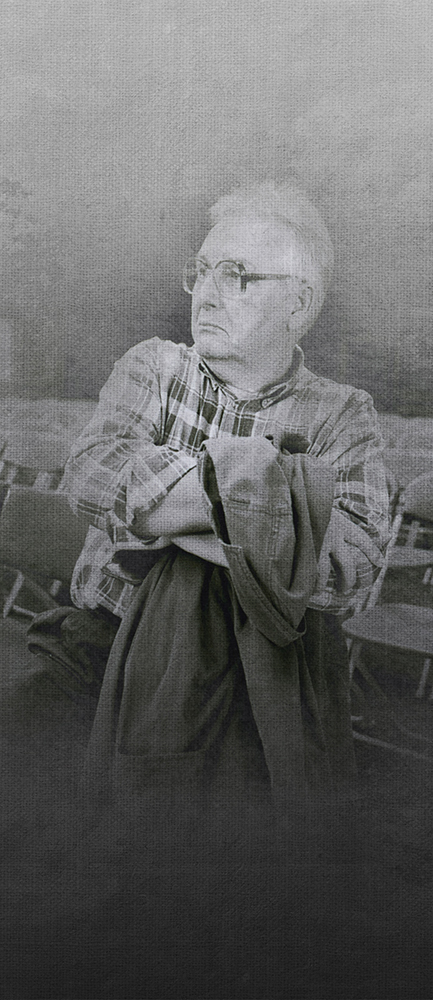
Henryk Mikołaj Górecki
composer of classical music
(born on 06.12.1933 r. in Czernica, died on 12.11.2010 r. in Katowice)
When people die - songs are being sung - a quote from the manuscript Third String Quartet by Henryk Mikolaj Górecki
It was a close call and the incredible talent of Henryk Górecki, one of the greatest Polish composers of the second half of the twentieth century, would not have seen the light of day. For the first nineteen years of his life, Górecki had little in common with music. The passion for notes was effectively suppressed by his parents – his father and his stepmother. Young Henry could not even play the piano at home, which caused in him a sense of frustration and failure.
After reaching adulthood, Górecki applies for admission to one of the music schools. Little experience and little knowledge of the theory causes him however, to encounter difficulties. Finally, he is admitted to the Music School in Rybnik, to the pedagogical department. He then falls in love with classical music and dreams of becoming a composer.
Time of Górecki's first successes falls at the end of the fifties. In 1958 he performs at the Warsaw Autumn Festival, one of the world's biggest contemporary music festivals. There he presents his original piece - Epitafium, composed to the words of the poet Julian Tuwim.
In 1960 Górecki finishes music composition studies at the State Higher School of Music in Katowice. His further education takes place abroad, among other places in Paris. The sixties is the highlight of his musical creativity. He meets other prominent composers - among others Krzysztof Penderecki and Kazimierz Serocki - together with whom he develops a new style of contemporary music - sonorism, based on strong sounds and collisions of masses of sound.
Górecki's experiments - mixing instrumental techniques and permanently surprising the listener by providing him with unusual acoustic sensations - earned him a reputation as one of the most talented Polish composers of the younger generation.
At Warsaw Autumn in 1976 Górecki presents the Third Symphony, widely known as the Symphony of Sorrowful Songs. The piece consists of three lamentation songs, performed in subdued, almost minimalist sounds. The second song is particularly impressive, in which the composer used the text from the wall of Gestapo torture chamber in Zakopane. The Symphony quickly became the most famous work of Górecki, appearing on world charts - not just classical music charts - and providing him international fame.
Henryk Górecki died after a long illness of the lungs in 2010 at the age of 76. He is interred at the cemetery at Sienkiewicza street in Katowice.
Do you know?
- Górecki's Third Symphony was a bestseller in the music markets around the world. In the US the recording sold about 150 thousand copies.
- Many of Górecki's pieces refer to the ancient folk music, based on monotony, simplicity of design and recurrent motifs. For this reason, the work of the composer often referred to as the so-called new simplicity.
- A small portion of Górecki's music was film and theatre music.
- Most of the works of Górecki, contrary to the contemporary trends, are opuses.
- After returning from France, Górecki served as a professor and rector of his home institution - the State Higher School of Music in Katowice.
- Henryk Górecki, less than a month before his death, was awarded the Order of the White Eagle - the highest state distinction in Poland.






